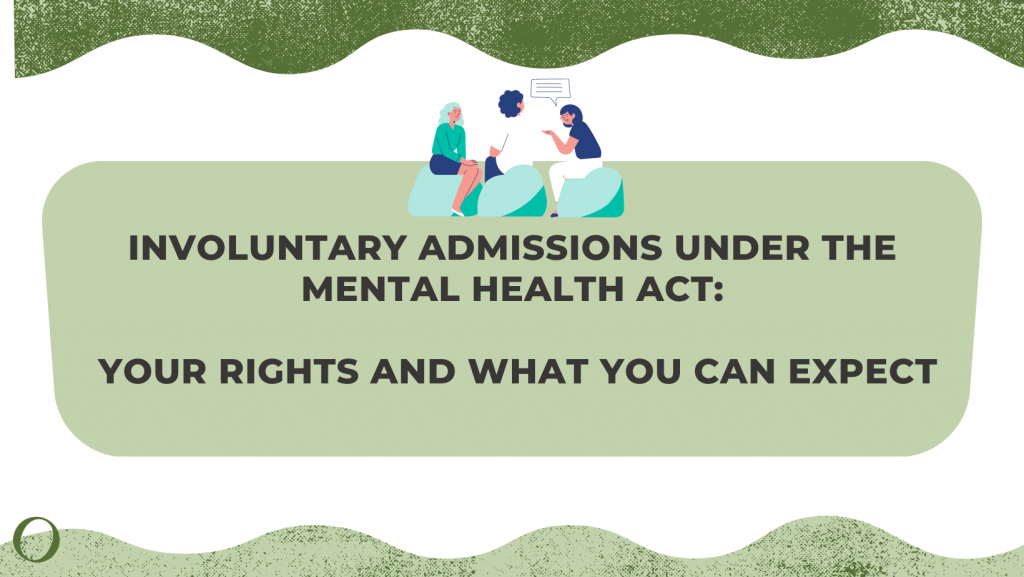
The Mental Health Act 2007 (NSW) (the ‘Act’) deals with involuntary admissions.
Involuntary admission involves a person going into to a mental health unit against their will. The Act sets out strict criteria that must be met before someone can be involuntarily admitted. These are:
While these terms are similar, there are some differences between classification as mentally ill and mentally disordered.
Under the Act, a ‘mentally ill person’ is someone suffering from mental illness and, owing to that illness, there are reasonable grounds for believing that care, treatment or control of the person is necessary—
A person is a ‘mentally disordered person’ if the person’s behaviour for the time being is so irrational as to justify a conclusion on reasonable grounds that temporary care, treatment or control of the person is necessary—
Only certain people can begin the process of involuntary admission.
In most cases, the first step towards involuntary admission involves a doctor or qualified mental health worker examining or observing the person and completing a ‘Schedule 1’.
Once a Schedule 1 is complete, family, friends, or mental health workers can take the person to the hospital to be admitted. Sometimes police or ambulance officers are asked to help. Police and ambulance officers can also request that someone be assessed at a declared mental health facility.
Once someone goes to a declared mental health facility for admission, they can only go into detention if two doctors agree that their detainment is necessary and lawful under the Act. One of these doctors must be a psychiatrist. If the second doctor does not find the person to be mentally ill or mentally disordered, a third doctor may examine the person. If a majority of these doctors believe that the person is mentally ill or disordered, the admission of the person occurs.
If you are considered a ‘mentally disordered person’, authorities can keep you in a hospital for up to three continuous working days, or in other words, three days not including weekends or public holidays.
If you are considered to be a ‘mentally ill person’, you may be kept in a hospital until the Mental Health Review Tribunal (‘The Tribunal’) holds a mental health inquiry. Your admission goes for review by the Tribunal after you have been in hospital for at least one week.
If you remain in hospital for more than two weeks, the Mental Health Review Tribuna l (MHRT) must see you.
While detained, you may be given treatment against your wishes. The Mental Health Act has some safeguards in place to protect your interests during this time:
The Act also states that ‘every effort that is reasonably practicable’ should be made to involve you in the development of your treatment and recovery plans, and your plans for ongoing care.
Involuntary patients cannot discharge themselves from hospital. However, you can make a request for discharge to the Authorised Medical Officer at any time. They must respond within three working days.
If they refuse your request, you can appeal the decision to the Tribunal. The Tribunal will ‘stand in the shoes’ of the decision-maker and must discharge you if they satisfy themselves that you are not a mentally ill person or there is less restrictive care available. You may be discharged:
At any time during a detainment, a person’s Primary Carer can also apply to the Authorised Medical Officer for the discharge of the person. A doctor must assess the person, and a decision is due within three working days. This decision is also subject to appeal to the Tribunal.